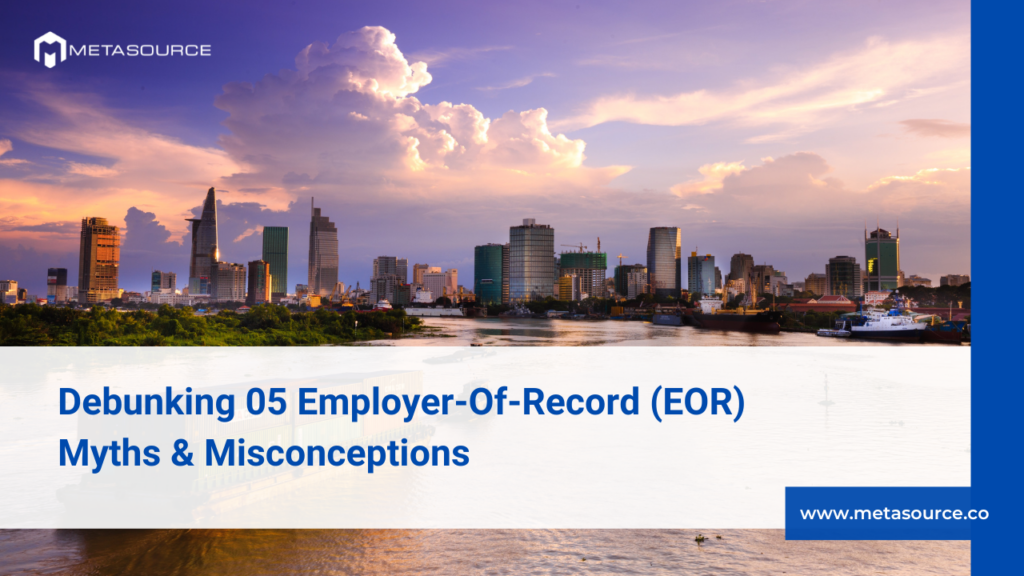Foreign entrepreneurs starting a business in Vietnam are exposed to many potential issues and delays. While processing times are improving and the Vietnamese economy is becoming more open, connected and modern, there are a series of common issues that appear during the registration process or soon after registering a new company.
This article provides an overview of common issues for any foreigner starting a business in Vietnam. Preparation and foresight can minimize the potential for unnecessary delays and cost in setting up your offshore operations.
Delays in Applications for Foreign Owned Companies
At times, Vietnam’s application process may appear bureaucratic. Several delays are commonly encountered when setting up a new company in Vietnam.
1) Notarization
Documents issued in a country other than Vietnam will require notarization (alternatively referred to as authorisation or legalization). If the relevant embassy does not offer support for notarization (eg. the United States, United Kingdom and Australia), these documents will need to be notarized in the country of origin, possibly requiring translation.
Please note that embassies change their notarization process from time to time. For example, the UK Embassy removed their support for local notarization in November 2017. The process now requires notarization at the UK Legalisation Office before being submitted to the Vietnamese Embassy in London.
It’s often best to assume that any documents will need to be notarized in their country of origin.
2) Wrong List of Documents
It’s possible that you will be provided with an incorrect list of documents. This may occur because the requirements have changed, and this is often the case for sub-licenses. There are also types of documentation that are somewhat ambiguous. For example, the ‘proof of business activity’ for a corporate foreign owner is open to the discretion of the authorities.
3) Variations to Names and Addresses
It’s common that names on official documents may have been shortened. Unfortunately, the authorities are very concerned with details. Make sure your documents have common names and common addresses, or expect some questions.
4) Signatures
In practice, Vietnam will often require the written name of the signatory alongside their signature. Play it safe: always sign and write the relevant name in block letters where required!
5) Expired Validity of Documents
Some documents need to be submitted within six months of issue. For example, this includes proof of financial capability. It’s always best to submit up-to-date documents.
6) Insufficient Number of Copies
Some documents (such as copies of passports) need to be submitted in multiple copies. Remember that you will need copies, also, to open bank accounts, so, it can be worth having extra copies.
7) Inconsistent Application and Interpretations
As Vietnam changes its laws and processes, there are instances where laws and processes conflict. This is particularly noticeable with banks.
8) Rushed Visits and Applications
Unfortunately, addressing issues such as those above often needs to be done in person at various government departments and other institutions, often in Vietnamese. This can consume significant amounts of time and can be very difficult to achieve on a tight schedule. Rather than requiring a separate repeat visit to Vietnam, its better to allow some additional time to your visit.
Issues for New Foreign-Owned Companies in Vietnam
There are a series of steps for new companies that are completed in short order after the Enterprise Registration Certificate (ERC) is issued. These steps include:
- Setting up a bank account;
- Settling the registered capital;
- Completing tax registration (including the company’s bank account, PIT reporting period, VAT payment method and other considerations);
- Paying the business license tax to the Tax Department;
- Confirming the existence and legitimacy of your business during a visit by the Tax Department; and
- Registering the VAT invoice book.
This process presents some potential traps for new foreign-owned companies. These include:
A) Failure to Settle the Registered Capital
The declared capital value of the company needs to be settled into the company’s capital account within 90 days of the issuance of the Enterprise Registration Certificate. This capital value needs to be equal to the capital declared on the Enterprise Registration Certificate.
B) Issues Relating to Loans
Loans from foreign owners in Vietnam need to be paid through the company’s capital account and often need to be registered. Not documented loans can be treated as revenue (incurring tax obligations). Banks may also refuse to allow the company to return an undocumented loan. Be careful with any loans to a newly created company in Vietnam.
C) Failure to Pay the Business License Tax
The business license tax is small but failure to pay it on time incurs a small penalty and potentially a lot of time to address the situation.
D) Unsatisfactory Inspection by the Tax Department
The Tax Department will visit your business address to verify the business, usually a short period after the ERC is issued. This review requires that the operation is legitimate. You’ll need to have the official blue panel for the business on display, in addition to an office and staff. Your legal representative will also need to be in attendance.
E) Failing to Register for VAT
Registering for VAT requires your company to confirm which method will be used for accounting for VAT. It is not possible to receive VAT refunds/credits if the company hasn’t declared the VAT payment method. This can have a significant impact on a new business.
There is also potentially an issue if the sales invoice book is not registered. This is a separate process and may be inadvertently skipped by companies that don’t expect to write revenue in Vietnam in the short to medium term. Even if the company is unlikely to regularly write revenue, its advisable to register the sales invoice book. Time is required for printing and approval, so it’s recommend to prepare well in advance of needing to issue a sales invoice.
F) Banking Headaches
Vietnamese law and banking practice is very specific. The required arrangements for capital, loans and revenue are different, and in some cases, evolving rapidly. Banks will be very specific and may reject transfers if the purpose is not clear, the execution is not appropriate or the transfer is made to the incorrect account. They may also insist on physical or notarized supporting documents. This style and practice can be an unexpected challenge for startups that are operating at a rapid pace.
G) Issues Relating to Sales Invoices
Official sales invoices are known as the infamous ‘red invoices’. Any purchase must be accompanied by an official sales invoice from the vendor, or the authorities will not permit the expense to be deducted from the company’s profit (when determining the relevant corporate income tax).
For example, consider the use of a contractor for building maintenance or installing a piece of equipment. Often these contractors will not issue VAT invoices. This is a a major source of frustration for new company owners in Vietnam!
H) Issues Relating to Cash Payments
Vietnam limits cash payments to 20m VND (about $850 USD). Payments above this amount need to be made by bank transfer, or the authorities will not permit the expense to be deducted from the company’s profit (when determining the relevant corporate income tax).
I) Failure to Complete Compliance Reports
Various government departments requires to complete mandatory reports , even if the company has not employed staff or generated revenue. Foreign owned companies are also required to submit an annual audit prior to distributing any profit.
Need More Information?
Read on for more detailed information on the establishment of companies in Vietnam. There are many other options when it comes to starting a business in Vietnam, including various company structures (such as a Limited Liability Company or a Joint Stock Company), ownership types and business fields. Metasource’s good advices can help you starting your business quickly and efficiently in Vietnam. Hassle free.














